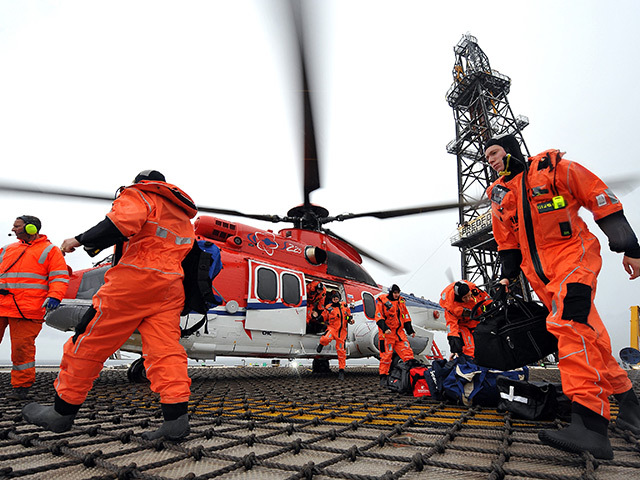
A new survey had laid bare the depths of the Covid-19 crisis afflicting the North Sea oil and gas industry, the RMT trade union said.
Two-thirds of respondents rated their employer’s response to the Covid-19 outbreak as average or worse, according to RMT.
Only 15% of offshore workers are entitled to full sick pay if they need to self-isolate or contract the virus, while 43% have not been issued with any PPE gear.
Social media has been awash with complaints from offshore workers about testing and social distancing on helicopters and platforms in the North Sea.
Numerous workers have been airlifted from platforms after showing symptoms or contracting the coronavirus.
RMT received 270 responses to its survey, which equates to 10% of its total membership in offshore oil and gas.
The survey was carried out from April 15-18 and coincided with the Offshore Coordinating Group’s (OCG’s) first participation in the Pandemic Steering Group (PSG), set up by Oil and Gas UK (OGUK).
OCG, a coalition or trade unions, set out its objectives for testing offshore workers, aviation and helicopter transport, access to furlough for all offshore workers and developing best practice amongst employers.
RMT general secretary Mick Cash said: “RMT members across the offshore industry must be heard by employers and the Health and Safety Executive during this disturbing period.
“We are calling for the PSG to deliver in the areas that the OCG trade unions have identified as priorities for our members.
“Furthermore, it is scandalous that key energy workers are left relying on statutory sick pay when this industry is as vulnerable as any other to Coronavirus contagion.”
A spokeswoman for OGUK said: “The Unions are members of OGUK’s PSG, which continues to work with multiple stakeholders to ensure we are doing everything we can to protect the health and welfare of our workforce.
“The industry has implemented a range of measures to manage and mitigate the spread of Covid-19 across our essential workforce. These include robust checks prior to mobilisation, temperature checks and the roll-out of a special protective face covering for those travelling offshore by helicopter.
“The PSG is also actively pushing for expanded testing capability across our workforce as an additional preventive measure to stop the virus reaching our offshore platforms.
“Additional measures to protect our workforce whilst offshore include social distancing, staggered mealtimes, and where possible single person cabin occupancy. Taken together we’ve got a comprehensive response and we continue to develop this through listening to our people”
Recommended for you

